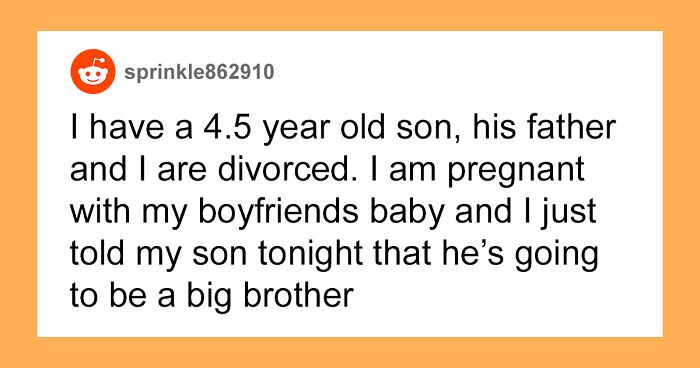
Mom Tells The Truth To Her 4.5-Year-Old Son About How Babies Are Born, Gets Called Out By Her Boyfriend
It’s important for children to feel OK about coming to their parents for reliable information. So when Reddit user u/sprinkle862910‘s son asked her where do babies really come from, she gave him an honest, age-appropriate answer. Or so she thought.
After the woman told her boyfriend about the conversation she had with her boy, the man immediately gave her the cold shoulder, saying the way she handled the situation was “weird.”
Lost and confused, u/sprinkle862910 turned to the subreddit Am I The A**hole, asking other people to share their thoughts on her parenting style. Here’s what she wrote.
Image credits: Halfpoint (not the actual photo)
According to experts, it’s natural for a child to be curious. So if they ask you “Where do babies come from?” and you are caught off guard, take a few minutes to compose yourself. You don’t have to answer immediately — find a place where you and your child can sit comfortably without making it a big deal.
Diana Divecha, Ph.D., who is a Berkeley-based developmental psychologist, focusing on the science of how children, teens, and families grow and develop, pointed out that different cultures have different norms about this topic and families get to choose how to handle these matters as they see fit. “My preference, however, from a western psychological perspective, is to convey accurate information to a child in a developmentally appropriate way, using words and concepts they can understand,” Divecha told Bored Panda.
The psychologist said that one of our roles as caregivers is to help a child build an accurate understanding of life. “Sowing confusion or inaccuracy for a child can derail their knowledge formation. Children eventually have to sort out the truth, so it’s just more efficient use of their mental resources to build an accurate model of life from the beginning rather than to have to backtrack and revise,” Divecha explained, adding that misleading a child can undermine their trust in you as a reliable resource. “It can also signal to them that lying or evading in a relationship is okay. It’s important, especially later when it comes to riskier topics, that trust remains at the core of your relationship with your child.”
Since the question of where do babies come from usually comes up in early childhood (at three, four, or five years), remember that children at this age are like little scientists. “They want to know how the world works, and they ask questions all the time in order to find out. They are interested in what they see around them, but also the big philosophical questions of life: where does life come from, what is death, what are bodily functions, and what is fair,” Dicecha said. “It’s best if we can answer those questions as accurately as we can, as often as we can, for their knowledge to progress.”
But learning happens in a spiral way as their cognitive development allows, the psychologist said. That means “a child can only understand the most basic part of a concept, but as their cognition becomes more sophisticated, they can layer in another incremental round of complexity.”
So even though we adults might have very complicated notions about sexuality, a four-year-old doesn’t. They just need the basics, so it’s best to use short, direct answers and choose words that are in line with their understanding of the world. Words they already use and understand. “A common mistake that adults make is approaching an answer with too many ideas, too many words, and too many agendas. Simple is best,” Divecha said.
To determine what a child already knows and what they want to know, she suggests a simple question like, “Do you have an idea about it?” or “What do you think?”
Their answer will give you an idea of where you need to start. “Listen carefully to what they say and what they really seem to be wanting to know. Then try to answer just their question and no more. You can follow up your answer with, ‘Do you have another question for me?’ And again, ‘Is there anything else you’d like to know?’ Or, ‘Are you curious about anything else?'”
“You’ll know when they’ve taken in all they can handle for now when they change the topic or run off to play; they’ve had enough.”
Divecha said such a conversation might look something like this:
“Where do babies come from?”
“In humans, babies grow in a part of the tummy called the womb (or uterus).”
“How do they get there?”
“It takes two parts to make a baby, an ovum and a sperm. When they join, a baby starts to grow.”
“How do they join?”
“The sperm grows in someone with testes, and the ovum grows in someone with a uterus. When people decide they want to have a baby, there’s a way to join the sperm and the ovum. Then the baby starts growing in the uterus, and they come out after a while when they’re ready.”
And so on.
“This kind of conversation attempts to stick to the facts, and it leaves open the varied ways that babies can be conceived,” Divecha explained. “If the questions continue, rather than generalizing, a caregiver can shift to how their child was conceived: sex, in-vitro, adoption, etc., perhaps with an emphasis on loving a child into being.”
Keep in mind that using the wrong words or phrases can sometimes scare a child. If they ask, for example, how the baby comes out and you explain a cesarean section with the words ‘cut out,’ it’s possible that the child will be alarmed.
Also, avoid euphemisms—it creates confusion. “Words like ‘seeds’ can create an image of an apple or watermelon seed growing inside a person. A phrase like ‘a special kind of hug’ for sex, could make a child afraid to hug someone lest they start growing a baby. Try to be accurate,” Divecha suggested. “Take care to manage your own emotions. Children are emotional Geiger counters and will pick up on the feelings you leak more than on the content of what you’re saying. Take a moment before you begin the conversation to breathe, center yourself, regulate your feelings, and tune into your child’s feelings. Try to bring calm energy and a matter-of-fact style.”
But according to Divecha, this is just the beginning of longer conversations you will have in the future. “Later, you can layer in other ‘learning moments’ where, for example, you two notice the reproduction and growth of plants or of other animals, or you read some books together about where babies come from and how they grow. Young children are especially interested in their own origin story, so over time, you might think about how you want to tell that story. This will become a part of a child’s ‘autobiographical narrative,’ or their own understanding of themselves.”
It’s OK if you find these conversations awkward or uncomfortable. They’re hard, especially at the beginning. But they definitely aren’t inappropriate.
People thought the boyfriend was out of his depth
Funny how the person who is NOT yet a parent thinks he knows best. There is absolutely nothing wrong with teaching our children the truth about these things
That was exactly my thought. If he has no experience parenting he could at least trust she knows how to treat her child.
Load More Replies...She was right, I mean, the kid is old enough to notice Mom's tummy getting bigger and bigger, and then smaller again when the baby sibling arrives. Gotta explain that in an age-appropriate way, you know? Pity the boyfriend was a d**k about it.
Plus: Mommy will loose mobility and maybe not be allowed to pick him up anymore. Or he might notice her being sick.
Load More Replies...Funny how the person who is NOT yet a parent thinks he knows best. There is absolutely nothing wrong with teaching our children the truth about these things
That was exactly my thought. If he has no experience parenting he could at least trust she knows how to treat her child.
Load More Replies...She was right, I mean, the kid is old enough to notice Mom's tummy getting bigger and bigger, and then smaller again when the baby sibling arrives. Gotta explain that in an age-appropriate way, you know? Pity the boyfriend was a d**k about it.
Plus: Mommy will loose mobility and maybe not be allowed to pick him up anymore. Or he might notice her being sick.
Load More Replies...
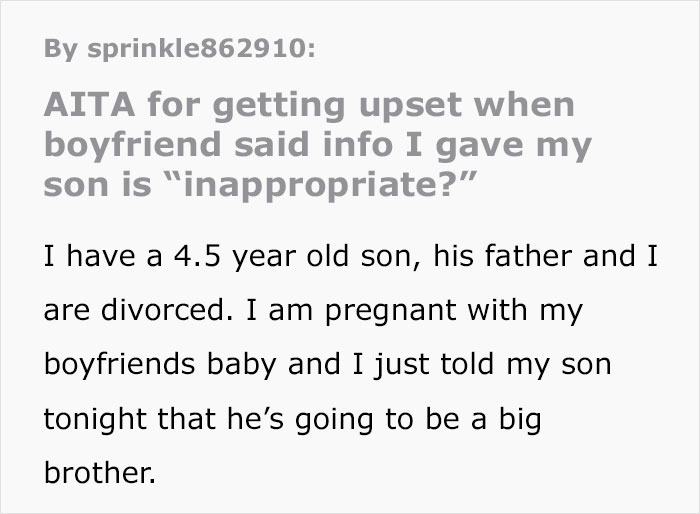
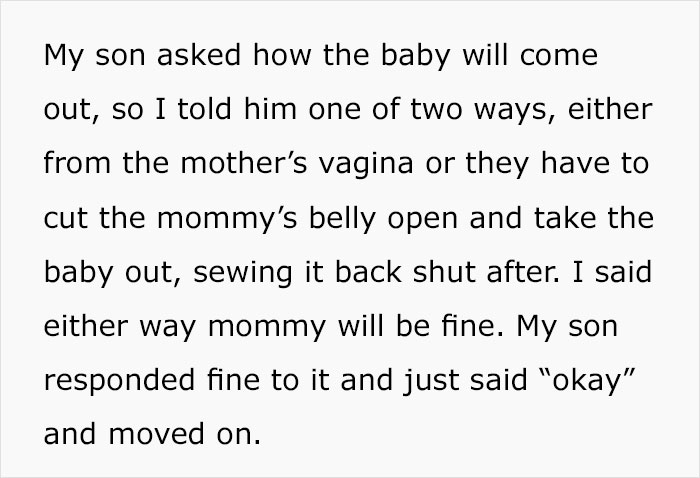
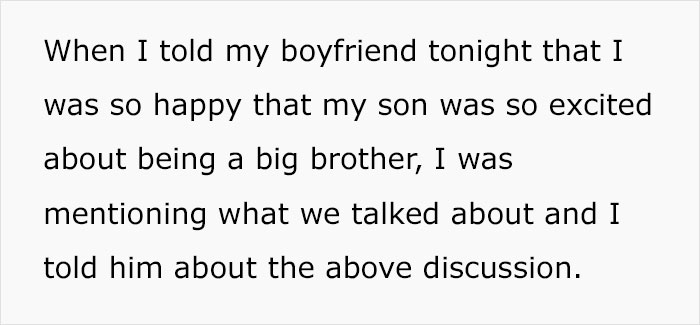

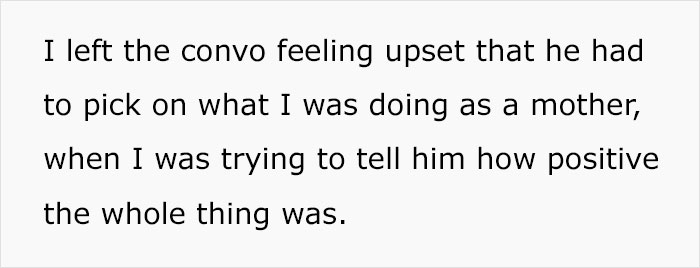
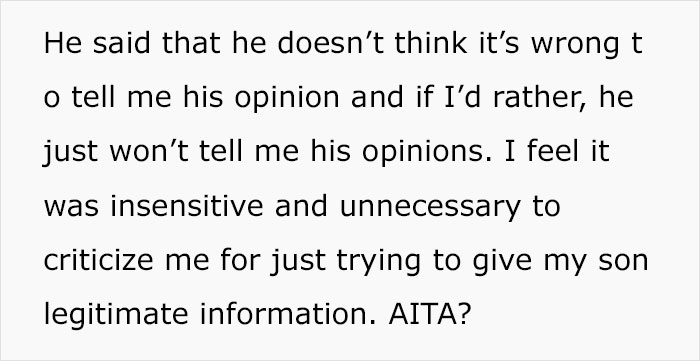


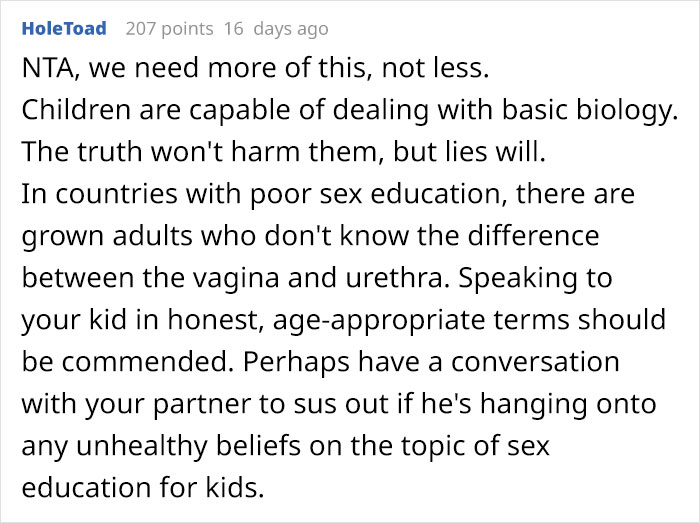
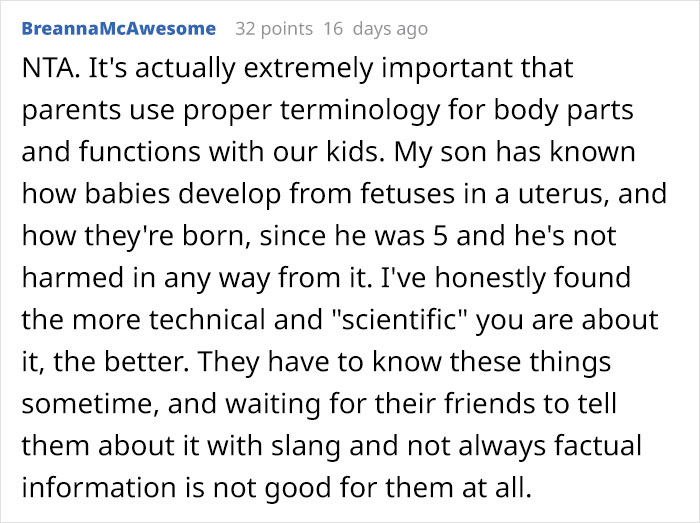


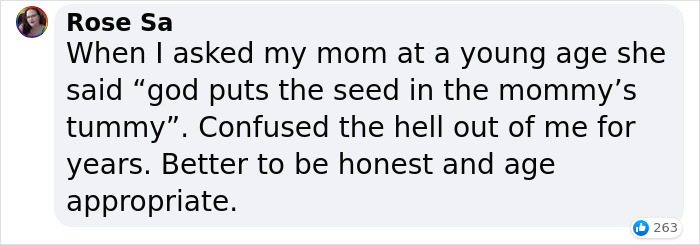
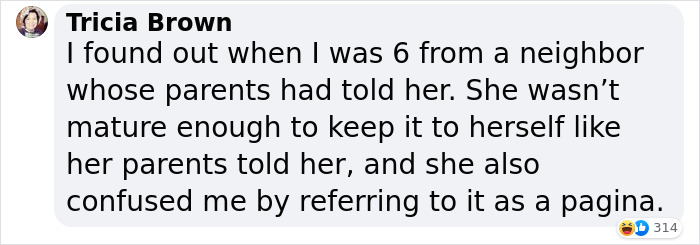

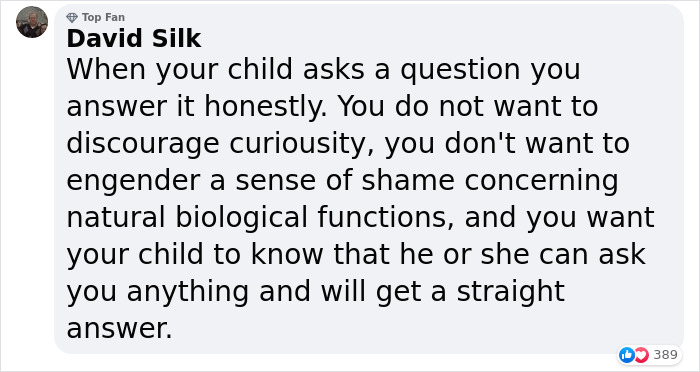
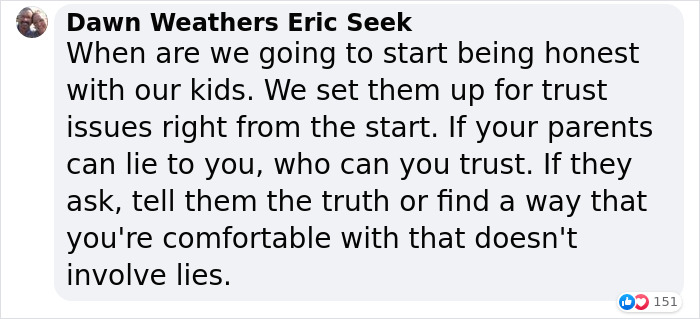
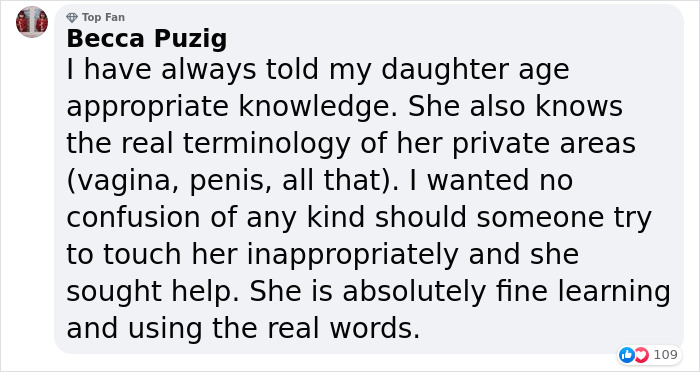
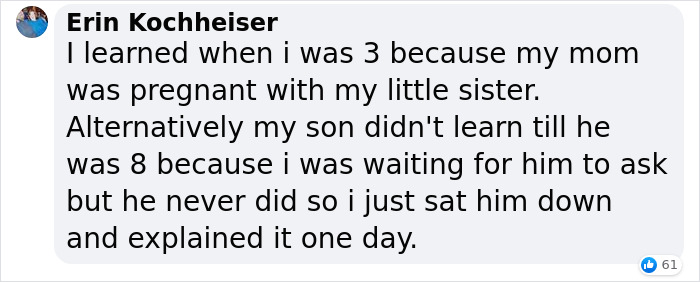
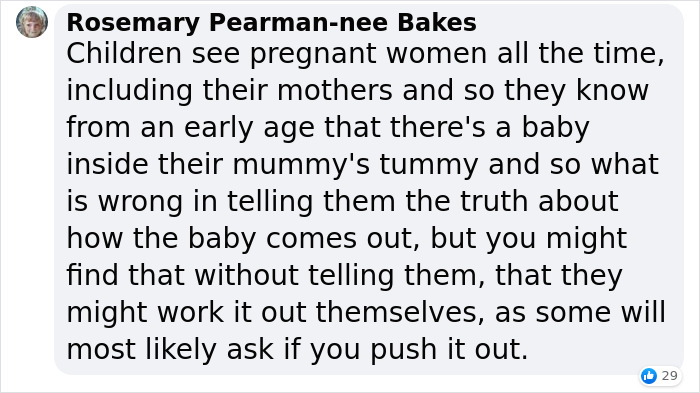




105
60